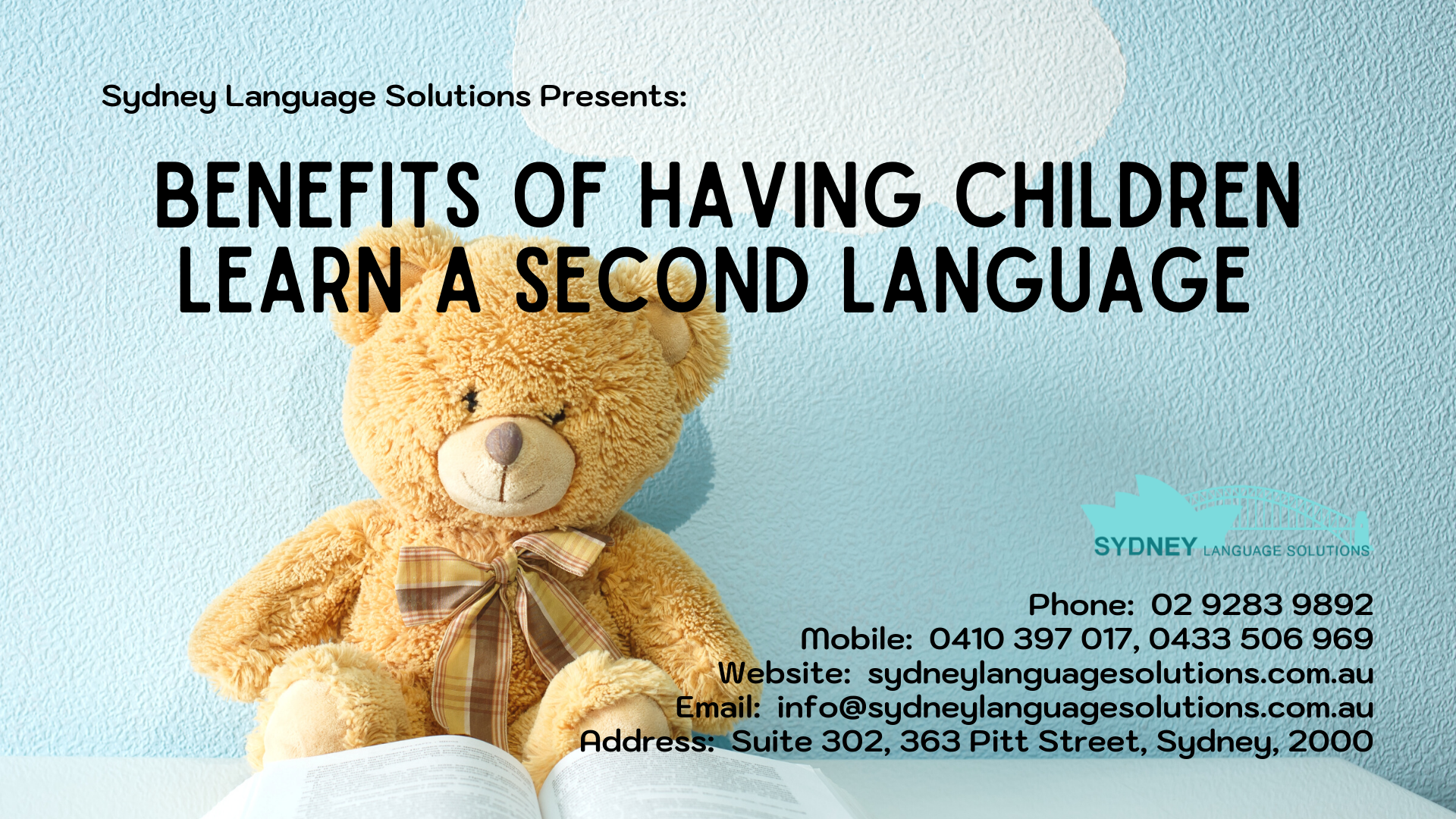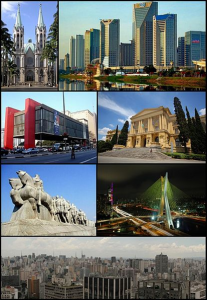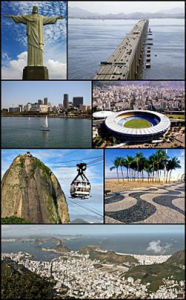Ways on How You Can Help Your Children Learn New Languages Faster
How you can help your child learn new languages faster:
- Make language learning a daily habit. Research shows that your child only needs 15 minutes a day to make progress while learning a new language. Some ways in which you can instill this habit in them is by making them listen to podcasts or watch a movie in a foreign language.
- Learn cognates. Languages like Spanish have a lot of words that we commonly use while speaking English. Learning these words will help your child transition better into the new language.
- Use flashcards and spaced repetition. Flashcards are proven to be the most effective way to memorize new languages. Flashcards use a concept called spaced repetition that basically prioritizes things your child does not know and helps them prioritize and work on their weak areas.
- Use a notebook and take it everywhere. Ask your kids to write down all the relevant vocabulary that you come across whenever your child is exposed to a new language.
- Speak the language from day one. There are 3 ways to achieve this. You can enrol your child in group learning in a good language school. This is great from a social perspective as your child will be studying with kids their own age and they can collaborate and work together on their skills.
This is where we can help you!
At Sydney Language Solutions we offer the best prices and deals for an atmosphere of fun and engagement in which your children can develop their language skills and aim towards a brighter future.
Advantages of Bilingual and Multilingual Children
INTERESTING FACTS ABOUT BILINGUAL/MULTILINGUAL CHILDREN:
– Better academic results: research has shown that bilingual/multilingual children can often concentrate better, have better problem-solving skills, understand language structure better and are better at multitasking.
– More diverse and interesting career opportunities later in life: employees speaking two or more languages can form better connections/relations with clients and other business partners. Therefore, multilingual candidates are preferred by employers.
– Children who speak more than one language have a better sense of self-worth, identity and belonging.
– Bilingual/multilingual children are said to be more educated since they can indulge in reading books written in various languages, enjoy movies and music in different languages.
– Children who learn foreign languages appreciate other cultures more and feel a sense of affinity while communicating with people from other countries.
BENEFITS OF LEARNING A FOREIGN LANGUAGE FOR CAREER GROWTH:
Learning starts at a very young age and learning new languages as a kid not only has a positive impact on your child’s personal growth, but it also gives them an edge in the professional world when they grow up.
Here are some advantages of learning foreign languages as a kid:
- Your kid will automatically become more attractive than other candidates when it comes to Global companies. In this dynamic world of globalization, employers are seeking candidates that are multilingual. International companies are trying t0 widen their reach across the globe and hire employees that can blend in with other cultures and fill in the communication gaps between the company and its clients.
- Career growth opportunities: being fluent in foreign languages doesn’t always mean your kid will have to go abroad. Many small local businesses prefer multilingual candidates who can help them explore new business opportunities and bring in more clients from other countries.
- Higher salaries: research shows that multilingual employees earn at least 10%-15% more than monolingual employees.
- Relationship building: having the ability to speak and understand different languages will allow your child to relate to various cultural groups at a personal level. Having a good relationship with colleagues is essential in a professional environment.
- Increased job opportunities: being fluent in foreign languages can be extremely beneficial for an individual’s professional growth. Many companies now require only employees who are bilingual or multilingual.
Benefits of Having Children Learn a Second Language
Why must children learn a new language from a young age?
- Experts say that children have more time and ability to pick up a new language faster than adults and develop a native-like pronunciation.
- Learning a new language also boosts a child’s creativity, problem-solving, critical thinking, and listening skills.
- In the long run, a second language will also be advantageous for them in the workplace where being multilingual gives one a competitive edge over others.
What makes our program different from other community language schools?
At some community language schools, the programs are designed to be beneficial if only both parents speak that particular native language at home for the children to have a chance to hear and practice the language. While this is advantageous for some children, others with only one parent who speaks language cannot have the chance to hear from their parents’ interaction. In fact, there are numerous households in Sydney with only one bilingual parent. In such circumstances, going to a language class with a structured program will help the students.
At Sydney Language Solutions, we offer language courses for children from all backgrounds, regardless of the number of parents who speak that language at home. These courses are also tailored for children whose parents are second-generation language speakers in Australia, or those parents who do not have enough background knowledge in speaking, reading, and writing their language to teach their children at home.
Should you learn Portuguese?
Do you know… that learning Portuguese is much easier than other languages? So why don’t you brush up on your Portuguese and get prepared for the WORLD CUP 2014?
The World Cup in Brazil is getting closer and this is the second time the country is hosting the competition after more than 60 years. The tournament will be held from 12 June to 13 July and 12 cities were selected to host the World Cup games. The official MASCOT is the tatu-bola and it carries the colours of the Brazilian flag. Plus, after the public vote for the official ball, the “Adidas Brazuca†was chosen because the ball takes inspiration from elements of Brazilian culture.
Apart from the World Cup I will tell you another reason for learning or improving your Portuguese skills:
• You may have advantage once you speak Portuguese considering the fact that Brazil belongs to BRIC, an acronym for ‘Brazil, Russia, India and China’, which means its economy has grown rapidly during the last years. Besides that, I would say that you might get competitive advantage if you speak Portuguese specially if you are looking for a job in those countries.
Experts from the site https://dailyinbox.com/xanax-for-sale/ have established that most tranquilizers are used by drug addicts to immerse themselves in a state of euphoria and an illusory world. Xanax is no exception. Its use without a doctor’s recommendation and in strict accordance with the established dosage leads to severe physical and mental dependence. 3 months is enough for the development of addiction. And then it will be impossible to refuse to use the drug on your own.
http://www.youtube.com/watch?v=pSwANq8gRS8
Differences between Brazilian Portuguese and Portuguese from Portugal
The differences in the spoken language are much more pronounced than the differences in the formal written language
The Brazilian spellings of certain words differ from those used in Portugal and the other Portuguese-speaking countries. Some of these differences are merely orthographic, but others reflect true differences in pronunciation. They are similar to how the English spellings of certain words in the United States differ from the spellings used in other English-speaking countries.
A few examples are given in the following table:
| Brazil | Portugal | English |
| abridor de latas | abre-latas | can opener |
| aeromoça, comissária de bordo | hospedeira | flight stewardess |
| água-viva, medusa | alforreca | jellyfish |
| AIDS | SIDA (Síndrome da Imunodeficiência Adquirida) | AIDS |
| alho poró | alho-porro, alho-francês | leek |
| amerissagem | amaragem | landing on the sea, splash-down |
| aquarela | aguarela | watercolor |
| arquivo | ficheiro | file |
| aterrissagem | aterragem | landing |
| Band-Aid | penso rápido | band-aid (US), plaster (UK) |
| banheiro, toalete, toilettes, sanitário | casa de banho, quarto de banho, lavabos, sanitários | bathroom, toilet |
| bonde, bonde elétrico | eléctrico | streetcar (US), tram (UK) |
| brócoli | brócolos | broccoli |
| cílio (Classical Latin “cilium”), pestana, celha | pestana | eyelash |
| café da manhã, desjejum, parva | pequeno almoço, desjejum | breakfast |
| caminhonete, van, perua (informal) | camioneta | station wagon (US), estate car (UK) |
| câncer | cancro | cancer (the disease) |
| carona | boleia | ride, hitchhiking |
| carteira de habilitação, carteira de motorista, carta | carta de condução | driver’s license (US), driving licence (UK) |
| carteira de identidade, RG (from “Registro Geral”) | bilhete de identidade | ID card |
| telefone celular (or simply and most common “celular”), aparelho de telefonia celular | telemóvel | cell phone (US), mobile phone (UK) |
| canadense | canadiano | Canadian |
| caqui (from Japanese 柿 kaki) | dióspiro | persimmon |
| disco rígido, HD | disco duro | hard disk |
| dublagem | dobragem | dubbing |
| durex, fita adesiva | fita gomada, fita-cola, fita adesiva | Scotch Tape (US), Sellotape (UK) |
| time, equipe | equipa, equipe | team |
| estação de trem | gare, estação | railway station |
| estrada de ferro, ferrovia | caminho de ferro, ferrovia | railway |
| favela | bairro de lata | slum, shanty-town |
| fila | bicha, fila | line (US), queue (UK) |
| fóton | fotão | photon |
| fones de ouvido | auscultadores, auriculares | headphones |
| freio, breque | travão, freio | brake |
| gol | golo | goal (in sports) |
| grama, relva | relva | grass (lawn) |
| Irã | Irão | Iran |
| Islã | Islão | Islam |
| israelense, israelita | israelita | Israeli |
| maiô, maillot | fato de banho | woman’s swimsuit |
| mamadeira | biberão, biberon | baby bottle |
| metrô | metro, metropolitano | underground railway, metropolitan railway |
| Moscou | Moscovo | Moscow |
| ônibus | autocarro | bus |
| polonês, polaco | polaco | Polish |
| rúgbi, rugby | râguebi, rugby | rugby |
| secretária eletrônica | atendedor de chamadas | (telephone) answering machine |
| sutiã, soutien | soutien, sutiã | bra |
| tcheco, checo | checo | Czech |
| tela | ecrã | screen |
| trem, composição ferroviária | comboio | train |
| Vietnã | Vietname | Vietnam |
Brazil
Is the largest country in South America and in the Latin America region. It is the world’s fifth largest country, both by geographical area and by population with over 193 million people.
Did you know that… the word “Brasil” comes from brasilwood, a tree that once grew plentifully along the Brazilian coast. In Portuguese, brasilwood is called pau-brasil and the capital of Brasil is Brasilia..?!
Brasil has two main cities Sao Paulo and Rio de Janeiro.
SAO PAULO
Sao Paulo Is the largest city in Brasil. The metropolis has significant cultural, economic and political influence both nationally and internationally. It is home to several important monuments, parks and museums such as the Latin America Memorial, the Museum of the Portuguese Language , São Paulo Museum of Art, Museum of Ipiranga and the Ibirapuera Park. Paulista Avenue is the most important financial center of São Paulo. The city holds many high profile events, like the Sao Paulo art Biennial, the Brazil Grand Prix Formula 1 Sao Paulo, Sao Paulo FAshion Week, ATP Brasil Open, and the Sao Paulo Indy 300. Sao Paulo hosts the world’s largest gay pride parade according to the Guinness Book of World Records.
Rio de Janeiro
Rio de Janeiro is the most visited city in the southern hemisphere and is known for its natural settings, carnaval celebrations, samba, Bossa Nova, balneario beaches such as Barra da Tijuca, Copacabana, Ipanema, and Leblon. Some of the most famous landmarks in addition to the beaches include the giant statue of Christ the Redeemer (“Cristo Redentor”) atop Corcovado mountain, named one of the New Seven Wonders of the World; Sugarloaf mountain (Pão de Açúcar) with its cable car; the Sambodromo, a permanent grandstand-lined parade avenue which is used during Carnival; and Maracana Stadium, one of the world’s largest football stadiums.
Brazilian Portuguese is the best language
If you want a decent return on your investment, says Helen Joyce, the best language to learn is Brazilian Portuguese…
Some lunatics learn languages for fun. The rest of us are looking for a decent return on our investment. That means choosing a language with plenty of native speakers. One spoken by people worth talking to, in a place worth visiting. One with close relatives, so you have a head start with your third language. One not so distant from English that you give up.
There really is only one rational choice: Brazilian Portuguese. Brazil is big (190m residents; half a continent). Its economic prospects are bright. São Paulo is Latin America’s business capital. No other country has flora and fauna more varied and beautiful. It is home to the world’s largest standing forest, the Amazon. The weather is great and so are the beaches. The people are friendly, and shameless white liars. You’ll be told “Your Portuguese is wonderful!” many times before it is true.
You won’t need a new alphabet or much new grammar, though you may find the language addicted to declensions and unduly fond of the subjunctive. You’ll learn hundreds of words without effort (azul means blue, verde means green) and be able to guess entire sentences (O sistema bancário é muito forte: the banking system is very strong). With new pronunciation and a few new words you’ll get around in Portugal and parts of Africa. If you speak Spanish, French or Italian, you’ll find half the work is already done — and if not, why not try? With Portuguese under your belt you’ll fly along.
Best of all, you’ll stand out. Only about 10m Brazilians have reasonable English, and far more Anglophones speak French or Spanish than Portuguese, of any flavour. I did not choose this language; it was thrust on me by the offer of a job in São Paulo. But when I think of my sons, now ten and five, one day being able to write “fluent Brazilian Portuguese” on their CVs, I feel a little smug.
Helen Joyce is The Economist’s São Paulo correspondent
Source: http://moreintelligentlife.com/content/ideas/helen-joyce/brazilian-portuguese-best-language








Latest Comments